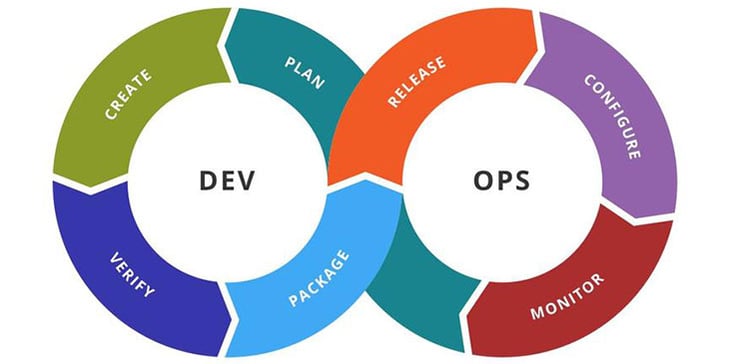At its most basic, DevOps refers to the combination of cultural philosophies, practices, and tools that increase an organisation’s ability to deliver applications and services of a higher quality at a faster velocity.
The ultimate goal of DevOps is to enable organisations to be more competitive in a digital transformation era – where rapid change is a defining feature – establishing an environment in which building, testing, and releasing software can happen frequently, quickly, and reliably.
Recently, we outlined some of the misconceptions surrounding DevOps and examined why professionals struggle to understand the benefits of a DevOps solution. In this post, we aim to go one step further and present a clear, succinct, and informative definition of DevOps – including a detailed illustration of what a DevOps environment should look like – and how to effectively implement a true end-to-end solution.
Why Software Matters
Software and the internet have transformed the world of
In recent years, the capabilities of computer technology have increased rapidly, and companies now interact with their customers through software delivered as online services, via applications, and on a range of different devices. In the same way the assembly line transformed how products were manufactured in the 20th century, DevOps is reshaping how companies build and deliver software in the 21st.
WHY DEVOPS MATTERS
Born out of the need to improve IT service delivery agility – placing a special focus on collaboration, communication, and automation – DevOps enables IT organisations to overcome many of the difficulties associated with modern-day software creation.
The demand for agile software solutions that are well-integrated, user-friendly and intelligent has become a differentiating factor for consumers in the competitive business landscape. With DevOps, organisations can innovate and test out ideas faster, deliver features more reliably, and generate cost savings while maintaining compliance, serving not only to increase revenue streams but also enhance the customer experience.
How DevOps Can Help
Any organisation that is developing software – particularly apps – can benefit from a DevOps solution. DevOps enables organisations to dissolve developmental and operational silos – increasing collaboration and communication across departments – and replace time-consuming processes with automated controls throughout all stages of the development lifecycle.
Within fast-moving organisations, complexity and fragmentation are rife. But DevOps represents an opportunity to strip away convolution and re-align business goals to achieve the agility required to effectively respond to marketplace opportunity, events, and trends.
HOW TO IMPLEMENT DEVOPS
While transitioning to an end-to-end DevOps solution can provide a number of business benefits, it can be complex, and will likely require a change in culture and mindset. From an organisational perspective, development and operational silos must be broken down. From a technological perspective, a DevOps model relies on effective tooling to help teams rapidly and reliably deploy and innovate.
Organisation
To successfully break down silos, lines of communication must be opened, shared objectives must be established, and senior management must lead by example. Practical changes in the way people meet and review results must be established, and transparency and visibility must be prioritised so that the entire DevOps team has a wider view of the shared picture.
Technology
A toolchain strategy enables IT organisations to utilise tools aligned in parallel to the activities required for a successful DevOps outcome. The key stages within the DevOps toolchain are: plan, create, verify, preprod, release, configure, and monitor, and the toolchain of choice should aim to support the DevOps approach throughout the entire lifecycle.

DevOps Impact
The impact of DevOps on business is tremendous. DevOps makes it possible to break down developmental and operational silos to enhance collaboration and communication, enables dev teams to create better quality software at a higher velocity, and better equips organisations to tackle common business challenges such as increasing time-to-market and meeting compliance requirements.
To summarise, DevOps is a software development and delivery principle that seeks to improve agility by breaking down silos and utilising automation tools. But, it is important to note that the full scale of DevOps benefits can only be attained when end-to-end automation, orchestration, and integration are achieved.
VASSIT are experts in the field of digital transformation and have helped a wide number of organisations, in a whole host of different industries, to successfully implement a DevOps solution. We've used this expertise to put together a comprehensive guide to Navigating DevOps, so if you'd like to learn more about how your organisation can benefit from DevOps and to confidently plan and execute the next step in your digital transformation, download our orientation guide now.



